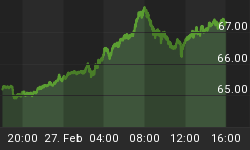One unique aspect of my homeschool curriculum is that students can start and manage their own online business. Students will be responsible for deciding what products or services to offer, getting the business up and running, and marketing the business's products. Students and their families will get to keep the profits made from the business. Hopefully, participants in this program will develop a business that can either provide them with a full-time career or a way to supplement their income.
Internet commerce is the most dynamic and rapidly growing sector of the American economy. Not surprisingly, the Internet is also relatively free of taxes and regulations, although many in Washington are working to change that. For example, earlier this year the Senate passed the Marketplace Fairness Act, more accurately referred to as the national Internet sales tax act. This bill, which passed the Senate earlier this year, would require Internet businesses to collect sales tax for all 10,000 American jurisdictions that assess sales taxes. Internet business would thus be subject to audits from 46 states, six territories, and over 500 Native American tribal nations.
Proponents of the bill deny it will hurt small business because the bill only applies to Internet business that make over a million dollars in out-of-state revenue. However, many small Internet businesses with over a million dollars in out-of-state revenues operate on extremely thin profit margins, so even the slightest increase in expenses could put them out of businesses.
Some businesses may even try to avoid increasing their sales so as to not have to comply with the Internet sales tax. It is amazing that some of the same conservatives who rightly worry over Obamacare's effects on job creation and economic growth want to impose new taxes on the most dynamic sector of the economy.
Proponents of the law claim that there is software that can automatically apply sales taxes. However, anyone who has ever dealt with business software knows that no program is foolproof. Any mistakes made by the software, or even errors in installing it, could result in a small business being subject to expensive and time-consuming audits.
Some say that it is a legitimate exercise of Congress's Commerce Clause power to give state governments the authority to force out-of-state businesses to collect sales taxes. But if that were the case, why shouldn't state governments be able to force you to pay sales taxes where you physically cross state lines to make a purchase? The Commerce Clause was intended to facilitate the free flow of goods and services across state lines, not to help states impose new burdens on out of state businesses.
The main proponents of this bill are large retailers and established Internet business. Big business can more easily afford to comply with a national Internet sales tax. In many cases, they are large enough that they already have a "physical presence" in most states and thus already have to collect state sales taxes. These businesses are seeking to manipulate the political process to disadvantage their existing and future small competitors. The Internet sales tax is a bad idea for consumers, small Internet business, and perhaps most importantly, the next generation of online entrepreneurs.
For more information about the small business program well as all other aspects of the Homeschool curriculum please go here. And to purchase a copy of my new book, The School Revolution: A New Answer for Our Broken Education System please go here.















